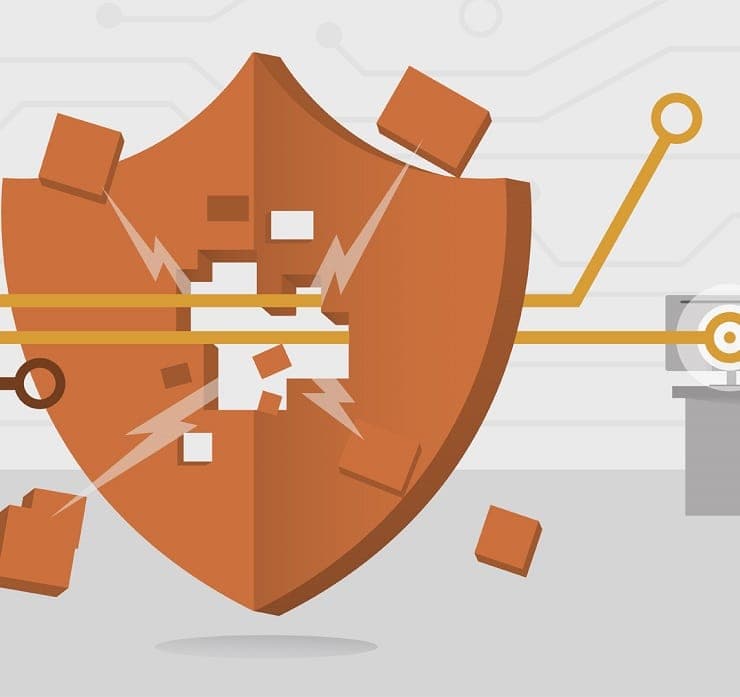Student Feedback
220-1001: CompTIA A+ Certification Exam: Core 1 Certification Video Training Course Outline
All About the CompTIA A+
Book Chapter 1 - Safety and Prof...
Book Chapter 2: The Visible Comp...
Book Chapter 3 - CPUs
Book Chapter 4 - RAM
Book Chapter 5 - Firmware
Book Chapter 6 - Motherboards
Book Chapter 7 - Power Supplies
Book Chapter 8 - Mass Storage Te...
Book Chapter 9 - Implementing Ma...
Book Chapter 10 - Essential Peri...
Book Chapter 11 - Building a PC
Book Chapter 17 - Display Techno...
Book Chapter 18 - Essentials of ...
Book Chapter 19 - Local Area Net...
Book Chapter 20 - Wireless Netwo...
Book Chapter 21 - The Internet
Book Chapter 22 - Virtualization
Book Chapter 23 - Portable Compu...
Book Chapter 24 - Understanding ...
Book Chapter 25 - Care and Feedi...
Book Chapter 26 - Printers and M...
All About the CompTIA A+
220-1001: CompTIA A+ Certification Exam: Core 1 Certification Video Training Course Info
220-1001 CompTIA A+ Core 1: Step-by-Step Exam Preparation Course
Successfully Clear CompTIA A+ 220-1001 Core 1 on First Try
What You Will Learn From This Course
By enrolling in this CompTIA A+ 220-1001 Core 1 Certification Exam course, learners will gain a solid understanding of fundamental IT concepts, hands-on skills, and exam-ready strategies. You will learn how to troubleshoot, configure, and manage devices and systems effectively while gaining the confidence to pass the Core 1 exam on your first attempt. This course will equip you with practical knowledge for real-world IT scenarios and ensure you are prepared to earn your CompTIA A+ certification.
Learning Objectives
Upon completing this course, you will be able to:
• Understand the architecture and functionality of PCs, laptops, mobile devices, and peripherals
• Identify and troubleshoot hardware issues in computing devices
• Configure operating systems, including Windows, macOS, Linux, and mobile OS
• Set up and maintain network connections and protocols for home and enterprise environments
• Implement security best practices, including physical security, authentication, and access controls
• Gain familiarity with cloud technologies, virtualization, and IT support tools
• Prepare efficiently for the CompTIA A+ 220-1001 exam by practicing with real-world scenarios and test simulations
• Develop problem-solving skills for diagnosing and repairing IT equipment
• Apply knowledge of system components, expansion cards, storage devices, and power supplies
• Understand mobile device synchronization, connectivity options, and troubleshooting techniques
Target Audience
This course is designed for anyone who wants to start a career in IT or enhance their technical skills. The ideal participants include:
• Aspiring IT professionals preparing for the CompTIA A+ Core 1 exam
• Entry-level technicians and support staff seeking practical skills in hardware, networking, and operating systems
• Students and recent graduates looking to launch a career in IT support and administration
• Individuals aiming to strengthen their IT knowledge to pass certification exams with confidence
• Professionals in non-IT roles who want to gain a deeper understanding of computing technology and troubleshooting methods
• IT enthusiasts seeking structured learning resources to master foundational computing concepts
Requirements
This course is structured to provide comprehensive guidance without requiring advanced technical knowledge. To benefit fully from this course, learners should:
• Have a basic understanding of computers and their everyday use
• Be comfortable using desktops, laptops, and mobile devices for learning
• Have access to a computer with internet connectivity to complete exercises and practice tests
• Dedicate time for practice questions and hands-on labs to reinforce concepts
Prerequisites
There are no strict prerequisites for this course. It is beginner-friendly and designed to build foundational knowledge from the ground up. However, the following will help learners get the most out of the course:
• Basic familiarity with computer operations, such as file management, installing software, and connecting to networks
• A general interest in IT support, networking, or computing technologies
• Willingness to practice and apply learned concepts in real-world scenarios
• Motivation to achieve the CompTIA A+ Core 1 certification and advance in an IT career
Hardware Fundamentals
A critical component of the CompTIA A+ Core 1 exam involves understanding computer hardware. Learners will explore internal and external components of desktops, laptops, and mobile devices. Topics include motherboards, processors, memory, storage devices, expansion cards, and peripheral connections. You will learn how to identify each component, understand its function, and troubleshoot common issues. Hands-on exercises in this course provide practical experience with component installation, replacement, and configuration.
You will also learn about various types of storage devices, including HDDs, SSDs, and hybrid drives, along with their performance characteristics. Power supplies, cooling systems, and display technologies are discussed in detail to provide a well-rounded understanding of computer hardware. By mastering hardware fundamentals, you will be able to diagnose and repair issues confidently, an essential skill for IT support roles.
Networking Essentials
Networking is another critical area of the Core 1 exam. This course covers networking concepts, including types of networks, IP addressing, common protocols, and wireless connectivity. Learners will understand the principles of LANs, WANs, and cloud networking, along with essential networking devices such as routers, switches, and access points.
The course emphasizes practical troubleshooting techniques for network connectivity issues, helping you prepare for real-world IT scenarios. You will gain knowledge of common ports, protocols, and wireless standards, ensuring that you can configure and secure network connections efficiently. Understanding these concepts is essential not only for passing the exam but also for providing effective IT support in professional settings.
Mobile Devices and Operating Systems
In addition to hardware and networking, this course covers mobile devices and operating systems. Learners will explore mobile device configuration, synchronization, and security best practices. Topics include tablets, smartphones, wearable devices, and their connectivity options. You will also study various operating systems, including Windows, macOS, Linux, Android, and iOS, learning how to install, configure, and troubleshoot each platform.
This section provides practical guidance on managing system updates, installing software, and maintaining device security. By mastering these concepts, you will be able to support a wide range of devices and environments, a key skill for IT professionals in modern workplaces.
Security Fundamentals
CompTIA A+ Core 1 also covers essential security concepts. This course introduces learners to basic security principles, including authentication, access control, physical security, and malware prevention. You will learn how to implement best practices to protect devices and data from potential threats.
Security is a foundational skill for IT professionals, and understanding these concepts will help you not only pass the exam but also build a strong career in IT support and cybersecurity. The course provides practical examples and scenarios to reinforce security knowledge, making it easier to apply in real-world situations.
Exam Preparation and Practice
This course includes a structured approach to exam preparation. You will engage with over 100 carefully selected practice questions that reflect the Core 1 exam format. These questions cover hardware, networking, mobile devices, operating systems, and security, giving you a comprehensive review of all exam objectives.
By completing the practice tests, you will gain confidence in answering multiple-choice and multiple-selection questions. The course also provides strategies for time management, effective study techniques, and tips for reducing exam anxiety. These tools ensure that you are fully prepared to take the CompTIA A+ 220-1001 exam and pass on your first attempt.
Course Modules / Sections
This CompTIA A+ 220-1001 Core 1 Certification Exam course is organized into structured modules to guide learners progressively from foundational knowledge to advanced practical skills. Each module is designed to align with the official exam objectives and provide a comprehensive understanding of IT hardware, networking, mobile devices, operating systems, and security principles.
The first module introduces learners to computer hardware, exploring the various components, their functions, and how they interact within a system. Detailed lessons cover motherboards, processors, RAM, storage devices, expansion cards, and peripheral interfaces. Hands-on exercises within this module provide practical experience in assembling and configuring systems, allowing learners to develop problem-solving skills that are essential for IT support roles.
The second module focuses on networking essentials. Learners will study networking fundamentals, including the types of networks such as LANs, WANs, and WLANs, as well as the differences between wired and wireless connections. Network protocols, IP addressing, subnetting, and essential network services are explained in detail. This module emphasizes troubleshooting network connectivity issues, enabling learners to identify and resolve common problems effectively.
The third module introduces mobile devices and operating systems. Topics include the configuration and maintenance of smartphones, tablets, and other mobile devices. Learners will gain knowledge of various operating systems, including Windows, macOS, Linux, Android, and iOS, learning how to install, configure, and troubleshoot them. The module also covers mobile device synchronization, connectivity options, and application management, ensuring learners are prepared to support a wide range of devices.
The fourth module covers security fundamentals. Learners will explore authentication methods, access control mechanisms, physical security, malware protection, and basic cybersecurity practices. This module also addresses common threats, such as phishing, social engineering, and ransomware, and provides strategies to mitigate risks. By understanding security principles, learners will be able to implement best practices in real-world environments while preparing for the security-related questions in the CompTIA A+ exam.
The fifth module focuses on cloud computing and virtualization. Learners will understand cloud concepts, types of cloud services, deployment models, and the benefits of virtualization. Topics include virtual machines, hypervisors, and cloud storage solutions, along with strategies for managing and troubleshooting virtual environments. This module provides practical knowledge that is increasingly relevant in modern IT environments and ensures learners are familiar with current industry trends.
The sixth module provides dedicated exam preparation and practice. Learners will engage with over 100 curated questions that simulate the format and difficulty of the actual Core 1 exam. This module emphasizes strategies for answering multiple-choice and multiple-selection questions efficiently, managing time during the exam, and reinforcing knowledge across all exam objectives.
Throughout all modules, learners have access to interactive demonstrations, practical labs, and scenario-based exercises designed to enhance retention and build real-world skills.
Key Topics Covered
The course covers an extensive range of topics required to pass the CompTIA A+ 220-1001 Core 1 exam and excel in IT support roles.
Hardware topics include motherboards, CPU types, RAM modules, power supplies, storage devices including SSDs and HDDs, expansion cards, input/output devices, and peripheral connections. Learners will understand system components, functionality, compatibility, and troubleshooting techniques. Hardware maintenance, installation, and replacement procedures are also addressed to provide hands-on experience.
Networking topics cover network types, topologies, cabling, wireless standards, IP addressing, DHCP, DNS, and common network protocols such as TCP/IP, FTP, and HTTP. Network hardware, including routers, switches, modems, and access points, is discussed along with configuration and troubleshooting procedures. Learners will also explore basic network security, firewall setup, and connectivity troubleshooting.
Mobile device topics include smartphones, tablets, wearable devices, and their integration into network environments. Learners will study device synchronization, connectivity options, mobile operating systems, security considerations, and troubleshooting mobile applications and connectivity issues. This ensures proficiency in supporting both personal and enterprise mobile devices.
Operating system topics cover installation, configuration, management, and troubleshooting for Windows, macOS, Linux, Android, and iOS. Learners will explore system utilities, file management, user account setup, permissions, updates, and system recovery procedures. Knowledge of system optimization, software installation, and troubleshooting common errors is also emphasized.
Security topics focus on authentication methods, access controls, encryption, malware detection and removal, physical security measures, and best practices for protecting devices and networks. Learners will also study social engineering attacks, phishing, and preventive measures, ensuring a well-rounded understanding of IT security fundamentals.
Cloud computing and virtualization topics include cloud service models (IaaS, PaaS, SaaS), deployment types (public, private, hybrid), virtualization concepts, virtual machines, hypervisors, and cloud storage. Learners will understand the advantages of virtualization, cloud-based solutions, and the tools required to manage virtual environments efficiently.
Exam preparation topics focus on practice questions, time management strategies, understanding exam objectives, and confidence-building techniques to ensure learners are fully prepared to pass the CompTIA A+ Core 1 exam on their first attempt.
Teaching Methodology
The course employs a hands-on, practical teaching methodology designed to facilitate learning through engagement, repetition, and real-world application. Each module incorporates a combination of instructional videos, step-by-step demonstrations, and scenario-based exercises. Learners are encouraged to follow along with exercises on their own devices to reinforce understanding and gain practical experience.
Concepts are explained using clear, real-world examples to ensure learners grasp both the theory and its application. Interactive demonstrations allow learners to visualize processes such as hardware installation, network configuration, and mobile device setup, making abstract concepts tangible.
Scenario-based exercises provide contextual learning, allowing learners to apply theoretical knowledge to practical problems they might encounter in IT support roles. This approach strengthens problem-solving skills, critical thinking, and the ability to troubleshoot effectively under real-world conditions.
Regularly updated practice questions mimic the exam format, helping learners become familiar with the types of questions and scenarios they will face. Time management strategies and exam-taking techniques are integrated throughout the course to boost confidence and improve performance.
The teaching methodology also emphasizes repetition and reinforcement. Key concepts are revisited across modules, ensuring learners retain critical information. Learners are encouraged to practice consistently and track their progress to identify areas that require additional focus.
Peer interaction and discussion forums are integrated to provide collaborative learning opportunities. Learners can share insights, clarify doubts, and engage with instructors to gain a deeper understanding. This ensures a supportive learning environment where knowledge is reinforced through interaction and shared experience.
Assessment & Evaluation
Assessment in this course is designed to evaluate both theoretical knowledge and practical skills. Learners will engage in multiple assessment activities throughout each module to ensure a comprehensive understanding.
Practice tests simulate the format and difficulty of the CompTIA A+ 220-1001 Core 1 exam. These assessments include multiple-choice and multiple-selection questions that cover all exam objectives, providing learners with realistic exam preparation. Immediate feedback on answers allows learners to identify knowledge gaps and focus their study efforts effectively.
Practical exercises and scenario-based assessments evaluate learners’ ability to apply theoretical knowledge in real-world situations. These exercises cover hardware installation, system troubleshooting, network configuration, mobile device management, and security implementation. Learners are expected to demonstrate competence by completing tasks accurately and efficiently.
Progress is tracked through module completion and quiz scores, allowing learners to monitor improvement and adjust their study strategies accordingly. Assessment results help learners identify strengths and weaknesses, ensuring targeted preparation before attempting the actual certification exam.
In addition to structured assessments, learners are encouraged to perform self-assessments and reflection exercises. By reviewing completed exercises, analyzing errors, and revisiting challenging concepts, learners strengthen their understanding and enhance exam readiness.
A final comprehensive practice test integrates all course topics, providing a capstone evaluation that mirrors the Core 1 exam experience. This final assessment allows learners to practice time management, apply problem-solving strategies, and build confidence for the real exam.
The course also emphasizes the importance of continuous evaluation and practice. Learners are encouraged to revisit previous modules, reinforce key concepts, and practice regularly to ensure mastery of all exam objectives. This iterative approach to learning ensures that learners are fully prepared to pass the CompTIA A+ 220-1001 Core 1 exam on their first attempt.
Benefits of the Course
Enrolling in the CompTIA A+ 220-1001 Core 1 Certification Exam course offers a wide range of benefits for both aspiring and current IT professionals. This course is designed to provide learners with the knowledge, skills, and confidence needed to pass the exam on their first attempt while equipping them with practical expertise applicable in real-world IT environments.
One of the primary benefits is comprehensive exam preparation. The course includes over 100 carefully curated practice questions and answers aligned with the latest exam objectives. These questions provide a realistic simulation of the Core 1 exam, enabling learners to practice effectively, identify knowledge gaps, and improve their performance before attempting the certification exam.
Learners also gain hands-on experience with hardware, networking, mobile devices, operating systems, and security principles. By practicing real-world scenarios and exercises, learners develop problem-solving skills essential for IT support roles. This practical approach ensures that students are not only prepared for the exam but also ready to handle everyday IT challenges efficiently.
The course enhances career prospects by providing an industry-recognized credential. CompTIA A+ certification is highly respected among employers and is often considered a benchmark for entry-level IT roles. Passing the Core 1 exam demonstrates proficiency in foundational IT skills, making learners more competitive in the job market and opening opportunities in IT support, desktop support, helpdesk, and network administration.
Another benefit is the confidence gained through structured learning. The course is designed to guide learners from fundamental concepts to advanced topics in a clear and logical sequence. Learners are supported through interactive lessons, scenario-based exercises, and continuous assessments, ensuring mastery of critical concepts. This structured approach reduces exam anxiety and builds the confidence needed to succeed on the first attempt.
The course also provides flexibility for self-paced learning. Students can study at their own convenience, revisit lessons as needed, and practice questions multiple times to reinforce their knowledge. This flexibility allows learners to balance professional, academic, or personal commitments while preparing for the certification exam.
In addition to technical knowledge, learners develop transferable skills such as critical thinking, troubleshooting, and analytical reasoning. These skills are valuable for resolving complex IT issues and contributing to organizational efficiency. By completing this course, learners gain both theoretical knowledge and practical expertise that can be applied in diverse IT roles.
The course also guarantees learner satisfaction. With a 30-day money-back policy, students can confidently enroll knowing they have the opportunity to evaluate the course and its effectiveness. This ensures that learners receive maximum value from their investment in education and professional development.
Overall, the course benefits learners by providing exam readiness, practical skills, career advancement opportunities, confidence, flexibility, and professional growth. It is designed to empower learners to become certified CompTIA A+ professionals and excel in the IT industry.
Course Duration
The CompTIA A+ 220-1001 Core 1 Certification Exam course is structured to allow learners to complete the content efficiently while ensuring a thorough understanding of all topics. The total course duration is approximately 10 to 12 hours of instructional content, distributed across multiple modules covering hardware, networking, mobile devices, operating systems, security, cloud technologies, and exam preparation.
Each module is designed to provide focused learning in manageable segments, allowing learners to absorb information effectively without feeling overwhelmed. Video lessons are supplemented with hands-on exercises, practical demonstrations, and scenario-based activities to reinforce concepts.
The practice tests and review sessions are integrated throughout the course, ensuring that learners can continuously assess their knowledge and track progress. This modular structure allows learners to pace themselves according to their individual learning needs, making it suitable for both full-time students and working professionals.
In addition to the instructional content, learners are encouraged to dedicate time to self-study, revision, and practice questions. This self-paced approach enables learners to reinforce their understanding of challenging topics, review hands-on exercises, and focus on areas where they require additional practice.
While the core instructional content can be completed within approximately 12 hours, learners may spend additional time practicing exercises, reviewing exam questions, and consolidating knowledge. This ensures comprehensive preparation for the CompTIA A+ 220-1001 Core 1 exam and maximizes the chances of passing on the first attempt.
The course duration is optimized to balance efficiency and depth, ensuring learners gain a complete understanding of foundational IT skills while maintaining flexibility in their learning schedule. By dedicating consistent time to the course, learners can achieve mastery of exam objectives and practical IT competencies within a manageable timeframe.
Tools & Resources Required
To maximize learning and complete the CompTIA A+ 220-1001 Core 1 Certification Exam course, learners should have access to several essential tools and resources. These tools facilitate hands-on practice, reinforce theoretical knowledge, and simulate real-world IT scenarios.
A personal computer or laptop is required for following along with demonstrations, practicing software installations, and completing virtual exercises. The computer should have sufficient specifications to run multiple applications and virtual machines if needed for cloud and virtualization exercises. Operating systems such as Windows, macOS, or Linux can be used depending on the learner’s focus, as the course covers multiple platforms.
Reliable internet access is essential for streaming course videos, downloading resources, and participating in interactive exercises. A stable connection ensures smooth learning without interruptions and allows learners to access updates, practice tests, and additional learning materials provided during the course.
Software tools for operating system management, system diagnostics, and network configuration may be required to complete practical exercises. These include virtual machine software such as VMware or VirtualBox, system utilities for monitoring performance, and network tools for configuring and troubleshooting network connections. The course guides using these tools effectively.
Access to mobile devices, such as smartphones and tablets, is recommended for practicing mobile device management, synchronization, and connectivity exercises. Learners will benefit from hands-on experience configuring and troubleshooting devices running Android, iOS, or other mobile operating systems.
Supplementary resources, such as practice exams, lab guides, and reference materials, are provided throughout the course. These resources are carefully curated to align with the latest CompTIA A+ exam objectives and provide learners with additional opportunities to reinforce learning. By engaging with these resources, learners can track progress, review challenging concepts, and ensure readiness for the certification exam.
A quiet and organized study environment is also recommended to facilitate focused learning and hands-on practice. Minimizing distractions and creating a dedicated workspace enhances comprehension, retention, and the effectiveness of exercises.
By utilizing these tools and resources, learners can fully engage with the course content, practice critical skills, and build confidence in their ability to pass the CompTIA A+ 220-1001 Core 1 exam. Combining the instructional content with hands-on practice, virtual labs, and practice tests ensures that learners acquire both theoretical knowledge and practical competencies essential for IT support roles.
Career Opportunities
Completing the CompTIA A+ 220-1001 Core 1 Certification Exam course opens a wide range of career opportunities in the IT industry. This certification is recognized globally as a foundational credential for entry-level IT professionals and serves as a stepping stone for advanced certifications and specialized roles.
One of the primary career paths available to certified individuals is an IT support or helpdesk technician. In this role, professionals provide technical assistance to end-users, troubleshoot hardware and software issues, configure devices, and maintain network connectivity. The skills acquired in this course, including hardware installation, operating system management, and troubleshooting, are directly applicable to these responsibilities.
Desktop support specialists also benefit from this certification. These professionals focus on maintaining and supporting computers, laptops, and peripheral devices within an organization. The practical skills learned in the course, such as system diagnostics, software installation, and hardware maintenance, enable learners to perform their duties effectively and ensure minimal downtime for end-users.
Network support technicians and junior network administrators are additional career opportunities. The networking module of this course equips learners with knowledge of IP addressing, network protocols, cabling, wireless standards, and device configuration. These skills allow individuals to assist in network management, troubleshoot connectivity issues, and support the implementation of secure network infrastructures.
Mobile device management specialists can also leverage this certification. Organizations increasingly rely on mobile devices for business operations, and the ability to configure, manage, and troubleshoot smartphones and tablets is highly valuable. Learners who complete this course are prepared to support mobile device ecosystems and ensure seamless connectivity and security across multiple platforms.
Cybersecurity and IT security roles benefit indirectly from the CompTIA A+ certification. While this course focuses on foundational IT skills, understanding security principles such as authentication, access control, malware protection, and threat mitigation provides a strong base for pursuing specialized security certifications in the future. Certified individuals can work in junior cybersecurity roles, assist with implementing security policies, and contribute to risk management strategies.
System support and IT administration roles also become accessible. Learners gain practical experience with operating systems, cloud computing, virtualization, and system configuration. These skills allow professionals to manage desktops, servers, and virtual environments efficiently, providing organizations with reliable IT infrastructure support.
Furthermore, the CompTIA A+ certification is recognized by government organizations, educational institutions, and private companies worldwide. This opens opportunities in sectors such as healthcare, finance, education, and government IT departments, where certified professionals are in high demand to maintain secure and functional computing environments.
In addition to these roles, individuals can pursue freelance IT support or consulting opportunities. The practical knowledge and problem-solving skills gained in this course enable professionals to offer technical support services independently or as part of IT service companies. This flexibility allows learners to explore diverse career paths and develop a dynamic IT career.
By obtaining the CompTIA A+ Core 1 certification, learners not only enhance their employability but also build a foundation for continuous professional growth. This certification serves as a prerequisite for advanced certifications such as CompTIA Network+, Security+, and other specialized IT credentials, providing a clear path for career progression and higher earning potential.
Conclusion
The CompTIA A+ 220-1001 Core 1 Certification Exam course is a comprehensive and practical program designed to equip learners with the knowledge, skills, and confidence needed to pass the certification exam on the first attempt. Through a structured curriculum that covers hardware, networking, mobile devices, operating systems, security, cloud computing, and virtualization, learners gain a solid foundation in IT principles and hands-on experience in real-world scenarios.
The course provides over 100 curated practice questions and interactive exercises that simulate the Core 1 exam experience, allowing learners to develop problem-solving skills, reinforce understanding, and build confidence. By combining theoretical knowledge with practical application, learners are fully prepared to tackle the exam successfully.
The benefits of this course extend beyond exam preparation. Learners acquire transferable skills such as critical thinking, troubleshooting, analytical reasoning, and effective communication, all of which are highly valued in IT support and technical roles. The course also enhances career prospects by providing a globally recognized certification, making learners more competitive in the job market and opening opportunities in IT support, network administration, mobile device management, cybersecurity, and system administration.
With a flexible, self-paced learning structure, learners can study according to their own schedule, revisit modules as needed, and practice questions multiple times to ensure mastery of all exam objectives. The teaching methodology emphasizes hands-on practice, scenario-based exercises, and real-world examples, ensuring learners can apply their knowledge effectively in professional environments.
The course duration, approximately 10 to 12 hours, is optimized for efficiency while covering all essential topics. Tools and resources, including computers, mobile devices, virtualization software, and supplementary study materials, support interactive learning and hands-on practice. By utilizing these resources, learners gain the practical skills and technical confidence necessary to excel in the CompTIA A+ Core 1 exam and their IT careers.
Completing this course provides a strong foundation for future IT certifications and career advancement. Learners can pursue specialized certifications such as CompTIA Network+, Security+, or advanced vendor-specific credentials, building on the knowledge gained in the Core 1 course. The combination of practical skills, exam readiness, and professional credibility ensures that certified individuals are prepared to meet the demands of modern IT environments and succeed in their chosen career paths.
The CompTIA A+ Core 1 certification is widely recognized as a benchmark for IT proficiency. By earning this credential, learners demonstrate their commitment to professional development and their ability to support, troubleshoot, and maintain computing systems effectively. The course equips learners with the knowledge and confidence needed to excel in entry-level IT roles, provide high-quality technical support, and contribute to organizational efficiency and security.
Ultimately, the CompTIA A+ 220-1001 Core 1 Certification Exam course empowers learners to achieve their certification goals, build a successful IT career, and gain recognition in a competitive industry. With its comprehensive curriculum, practical exercises, exam-focused training, and career-enhancing benefits, this course provides a complete solution for aspiring IT professionals seeking to advance their knowledge, skills, and career opportunities.
Enroll Today
Take the first step toward your IT career by enrolling in the CompTIA A+ 220-1001 Core 1 Certification Exam course today. Gain the knowledge, skills, and confidence needed to pass the exam on your first attempt and open doors to a wide range of IT career opportunities. Join thousands of learners worldwide who have advanced their careers through CompTIA A+ certification. Start your journey now and become a certified IT professional capable of supporting, troubleshooting, and managing modern computing environments effectively.













